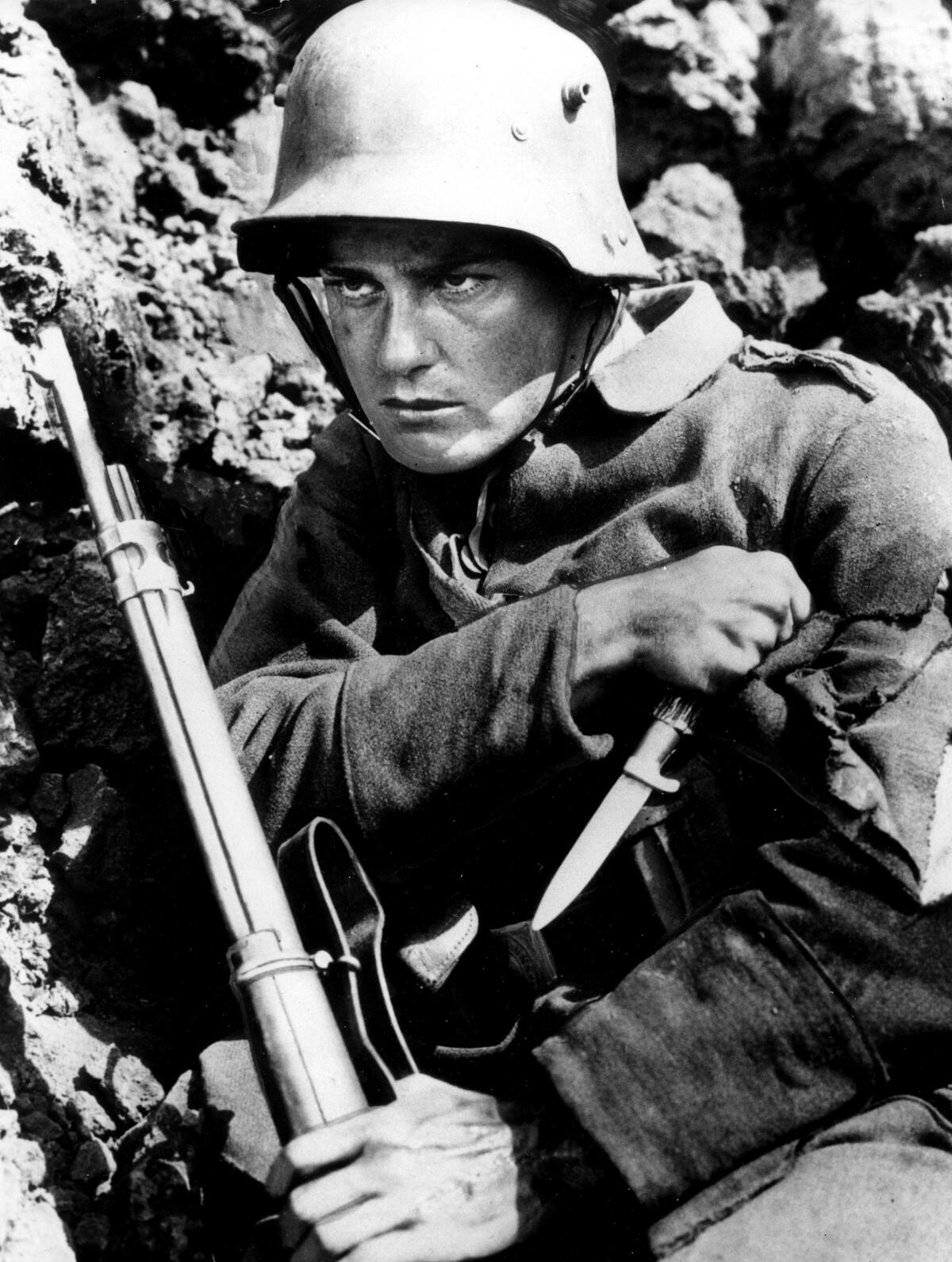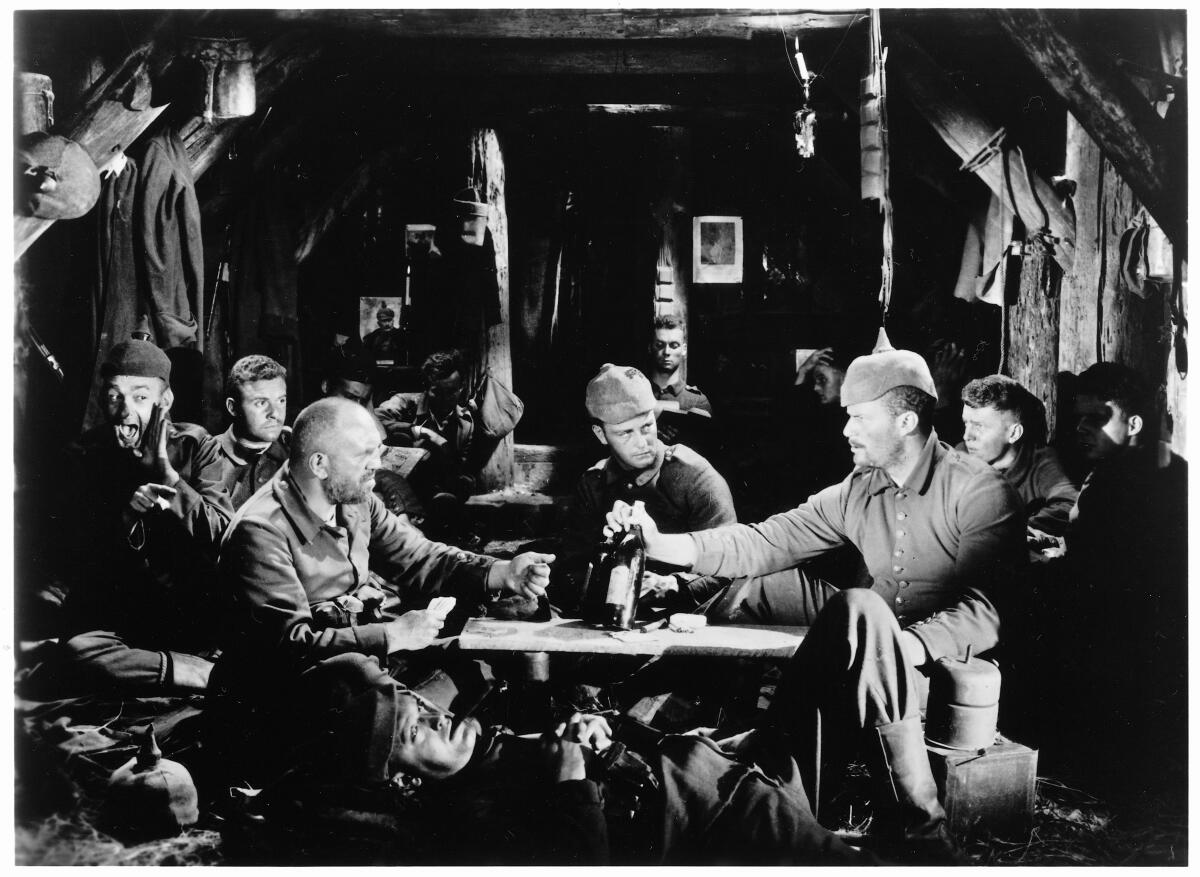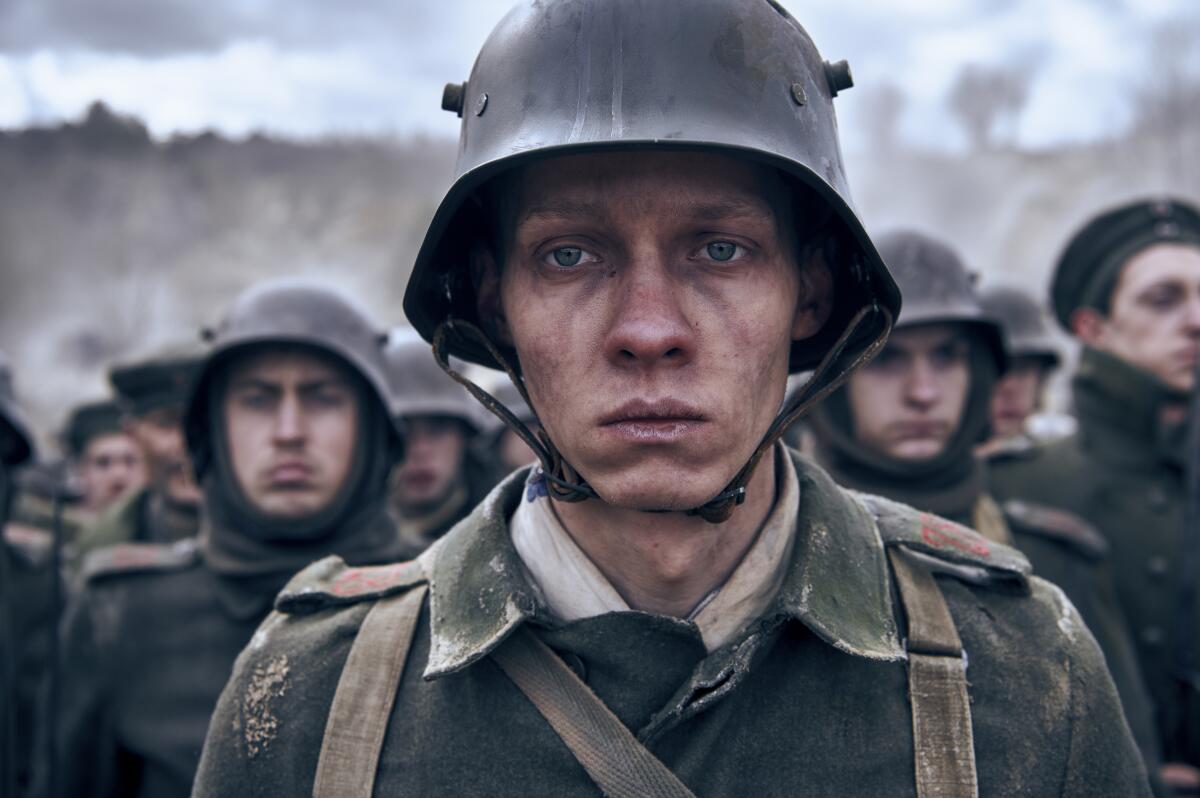Netflix remade ‘All Quiet on the Western Front.’ Here’s how to watch the 1930 original

- Share via
In 1930, at the third Academy Awards ceremony, the war epic “All Quiet on the Western Front” won for outstanding production, and Lewis Milestone won for directing. The first of two big-screen adaptations of Erich Maria Remarque’s novel was the second and final silent film to win the top prize, though according to movie critic Edwin Schallert‘s 1930 review, the Hollywood premiere was anything but silent: Behind the screen at the Carthay Circle Theatre there was a system in place to simulate the sounds of war during the battle scenes.
In 1979, the story was adapted a second time, this time for the small screen, as a Hallmark Hall of Fame special starring Richard Thomas, Ernest Borgnine, Donald Pleasence, Ian Holm and Patricia Neal. At the Emmys, “All Quiet on the Western Front” was nominated for outstanding drama or comedy special; Delbert Mann was nominated for directing and Borgnine and Neal were nominated for their supporting roles.
The 2022 adaptation, directed by Edward Berger, will represent Germany in next year’s Oscar race for international feature.
Edward Berger’s harrowing new adaptation of Erich Maria Remarque’s classic novel will represent Germany in the Oscar race for international feature.
Here’s how to stream all three versions:
‘All Quiet on the Western Front’ (1930)

Running time: 2 hours 13 minutes
Streaming: Amazon Prime: Rent/Buy | Apple TV+: Rent/Buy
It may well be called a preachment for peace. No motion picture has presented a bleaker, blacker etching of the horror of war than “All Quiet on the Western Front.” Erich Marla Remarque’s realistic story transcribed to the screen produced a profound impression upon its first audience.
“All Quiet On the Western Front” is one or the great productions of all time. Its battle scenes can be termed magnificent, though they are also fraught with horror.
On the scroll of great achievements of the screen, let the name of this production be deeply and darkly engraved. For until you have seen it you have never viewed the war portrayed on the motion-picture film.
Words are a feeble description of what occurs in this picture. I can see it only as a series of impressions of a terrible reality — one of the grimmest panoramas of the conflict with sound adding constantly to its uncanny realism.
I cannot recommend that you see this picture simply for enjoyment.
I cannot say enough. however, as to what a courageous accomplishment it is. No one should miss “All Quiet on the Western Front” because it is new proof of how surpassingly real the screen can be. (Read more of Edwin Schallert’s 1930 review.)
‘All Quiet on the Western Front’ (1979)
Rated: PG-13
Running time: 2 hours 28 minutes
Streaming: YouTube: Free, with ads
‘All Quiet on the Western Front’ (2022)

Rated: R, for strong bloody war violence and grisly images
Running time: 2 hours 28 minutes
Streaming: Netflix: Included
“All Quiet on the Western Front,” directed by Edward Berger, is hardly the first movie to argue — quite persuasively — that war is hell. It is, however, the first filmed adaptation of Erich Maria Remarque’s seminal World War I novel in which the Germans actually speak German. This solid, stirring new adaptation, which will represent Germany in the Oscar race for international feature, sets a noteworthy precedent. There’s an undeniable power in seeing Remarque’s once-serialized novel — an antiwar statement so definitive that it was duly banned by the Nazis a few years after its 1929 publication — brought to the screen in its original tongue. The sight of actual German actors in these roles can only lend authority to Remarque’s lament for a generation of men — his generation — who were “destroyed by the war,” even as it serves to bolster the movie’s horrifyingly visceral realism. (Read more of Justin Chang’s 2022 review.)
More to Read
Only good movies
Get the Indie Focus newsletter, Mark Olsen's weekly guide to the world of cinema.
You may occasionally receive promotional content from the Los Angeles Times.












